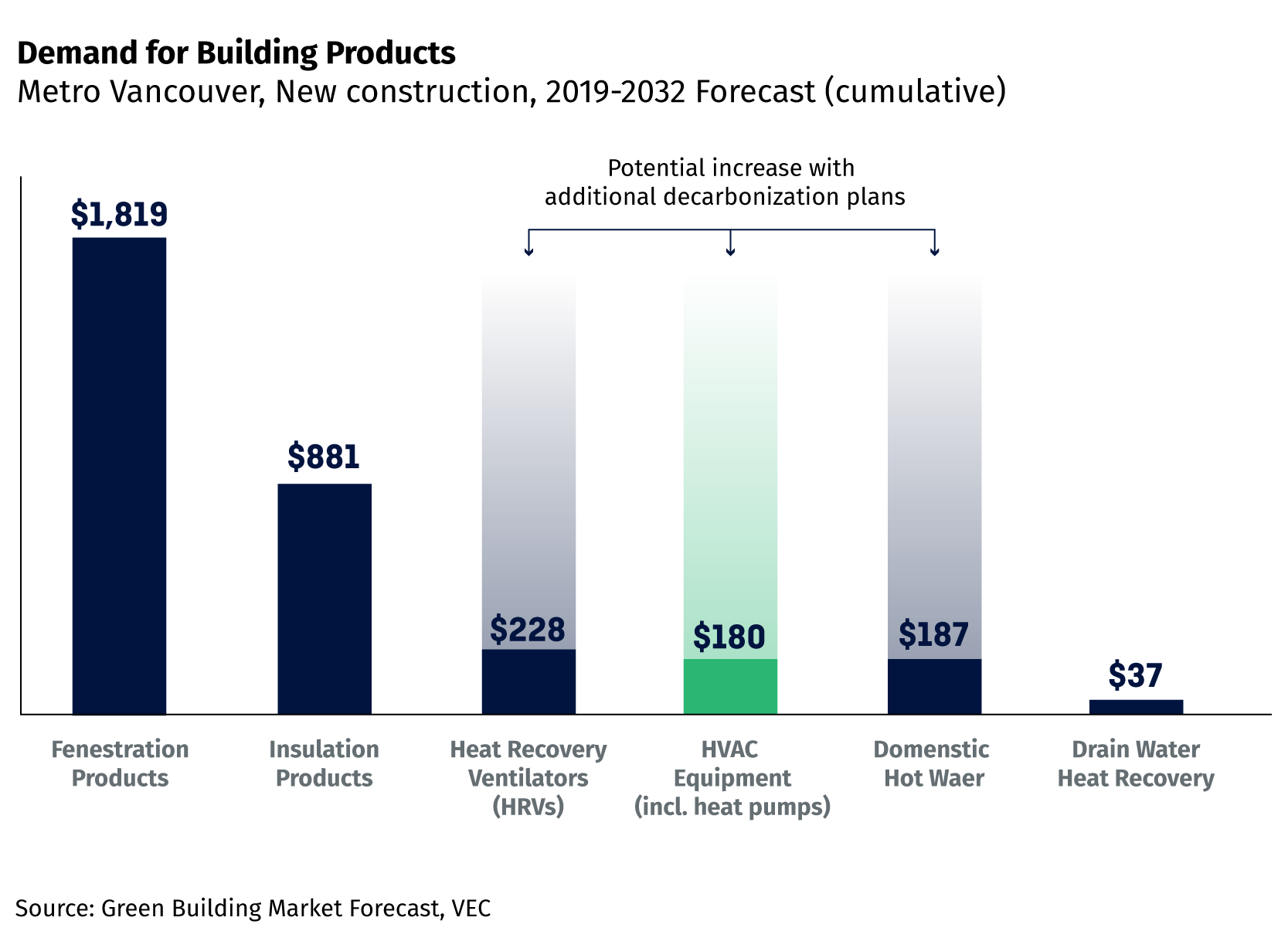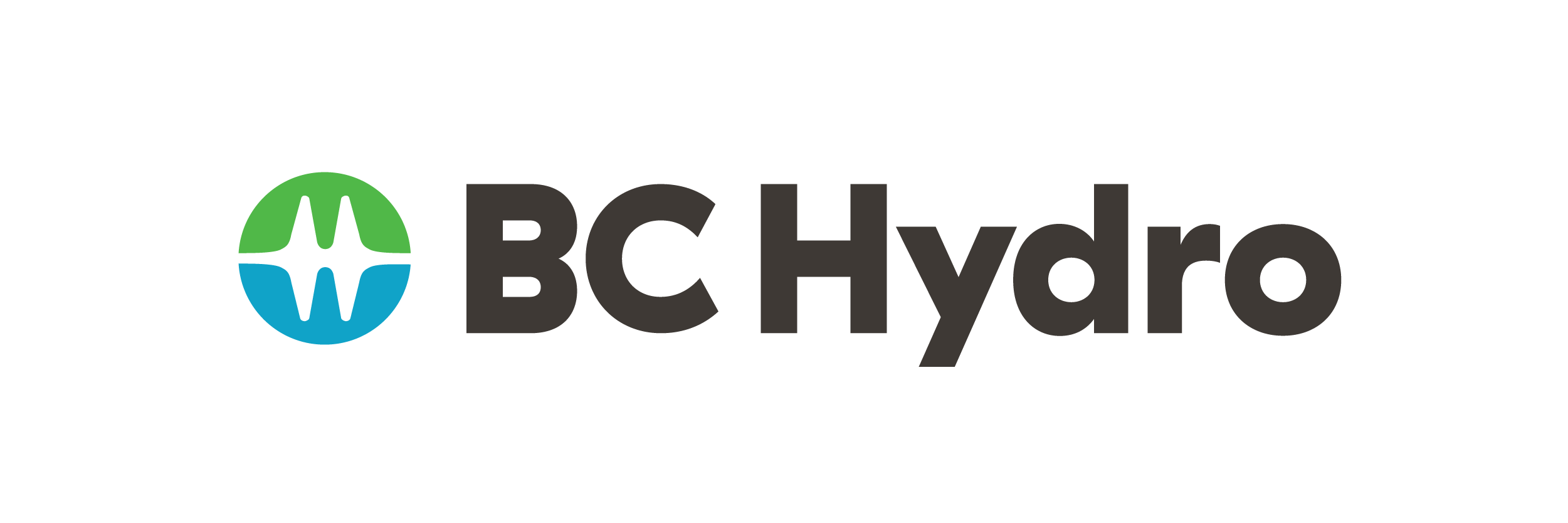BC Heat Pump Technology Attraction Strategy
Actionable steps towards decarbonization


Across BC, The use of fossil gas in buildings accounts for 11% percent (7.0Mt) of British Columbia’s greenhouse gas emissions; in urban centres, such as Vancouver, they represent 54 percent of emissions. Almost all of these emissions are produced from heating water and spaces – therefore, electrifying these processes is a critical step towards addressing, and reducing, the built environment’s carbon footprint.
Heat pump technologies and products play a key role in advancing BC’s building electrification, climate action, and economic development goals. Strategies focused on increasing market demand via regulations and incentives are important; however, the BC market also needs tactics to catalyze and attract new technology, with a goal of ramping up the volume and diversity of heat pumps supplied by global manufacturers. That’s where the BC Heat Pump Strategy comes into play.
The BC Heat Pump Strategy was created by BC Building to Electrification Coalition (B2E) and the Vancouver Economic Commission (VEC) as a roadmap to achieve the following:
Heat pumps represent a major economic opportunity. In 2019, VEC estimated the total market for green building technologies would exceed $3.3 billion by 2032. Since then, this estimate has radically increased thanks to decarbonization plans like the City of Vancouver’s Climate Emergency Action Plan, Metro Vancouver’s Climate 2050 Roadmap and the CleanBC Roadmap to 2030. Heat pumps have evolved into a critical element of BC’s green economy.

The BC Heat Pump Strategy was created to ensure British Columbians have access to an affordable supply of high-performance heat pumps. Below is a snapshot of barriers and proposed solutions:
The most significant barrier is the cost and complexity of introducing a new heat pump technology into a modest demand market.
Lack of a qualified workforce or adequate labour capacity to design and install heat pumps poses reputational risk to manufacturers.
Manufacturers’ concerns include:

Developing a strong, resilient and sustainable supply chain for heat pumps and other building decarbonization technologies won’t be an overnight process. However, now is the time to make investments for the long-term – the result could be well-paying, stable jobs and a boost to BC’s reputation as a global leader in climate action.
To learn how we can collectively achieve this goal, read the BC Heat Pump Technology Attraction Strategy.
To learn more about electrification technologies in BC, visit the BC Building to Electrification Coalition website. For further details about the BC Heat Pump Strategy, email Peter Sun, economic transformation analyst at the Vancouver Economic Commission, at psun@vancouvereconomic.com.



ZEETAP aims to help businesses and individuals address challenges related to the just and equitable transition to a zero-carbon economy.
In 2019, VEC estimated $3.3 billion in demand for green building products across Metro Vancouver as an outcome of the implementation of the BC Energy Step Code. This data provides a baseline of the demand for heat pumps and other, related products.
VEC has developed a huge variety of programs and research related to green buildings, touching on topics from finance to embodied carbon, resilience, and the circular economy.
The Vancouver Economic Commission respectfully acknowledges that it is located on the unceded territories of the xʷməθkʷəy̓əm (Musqueam), Sḵwx̱wú7mesh (Squamish), and səl̓ilwətaɁɬ (Tsleil-Waututh) Nations.